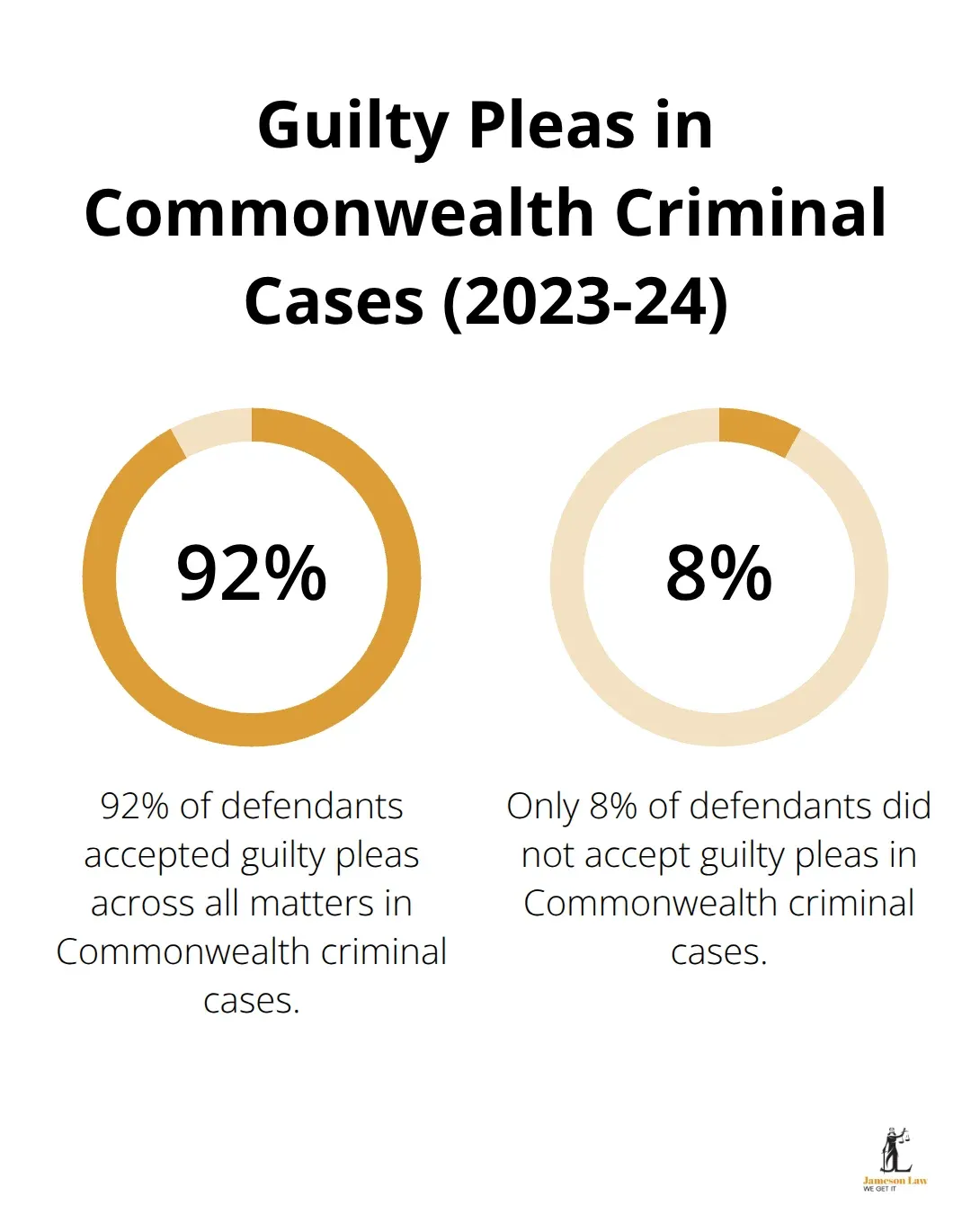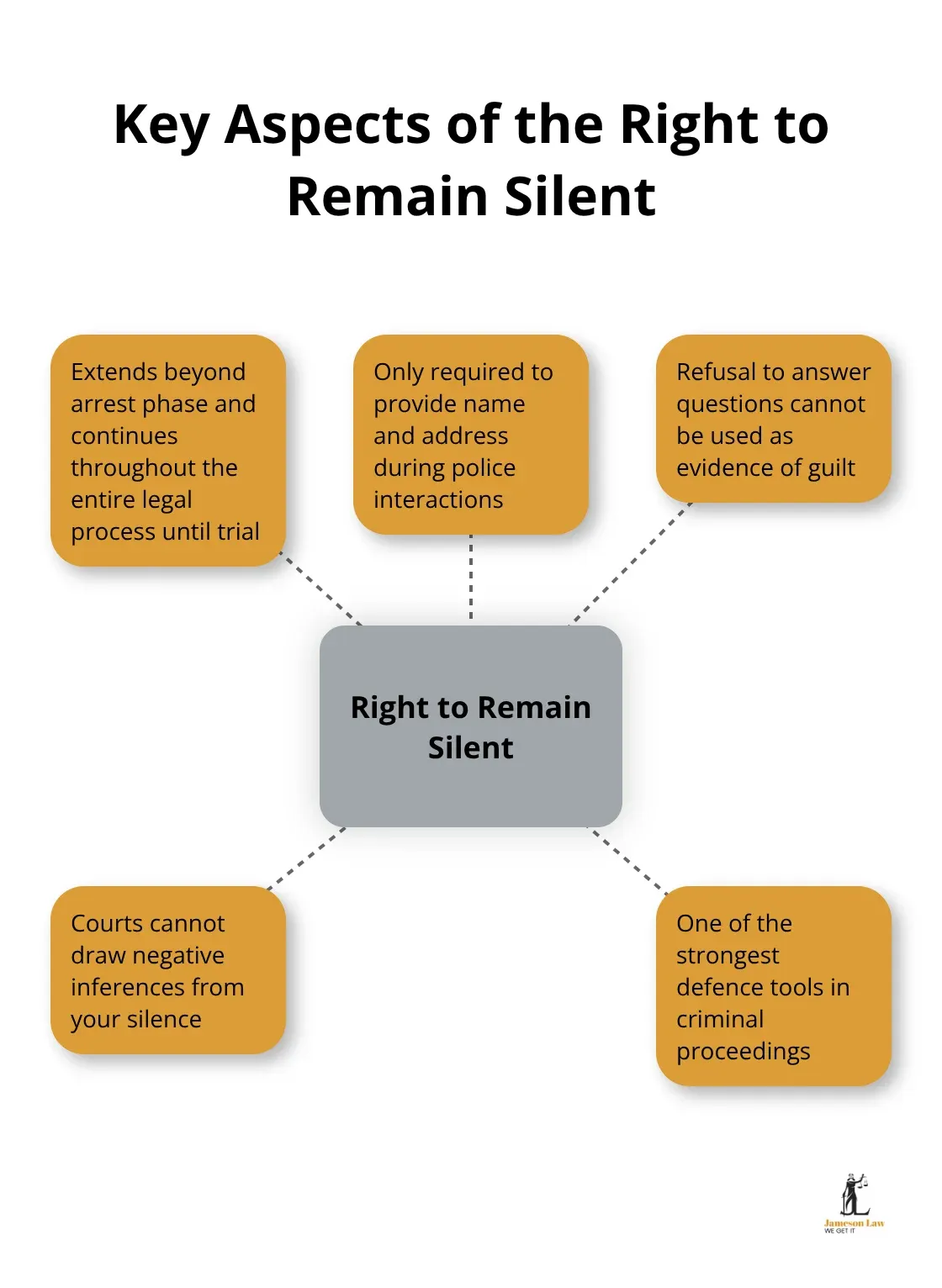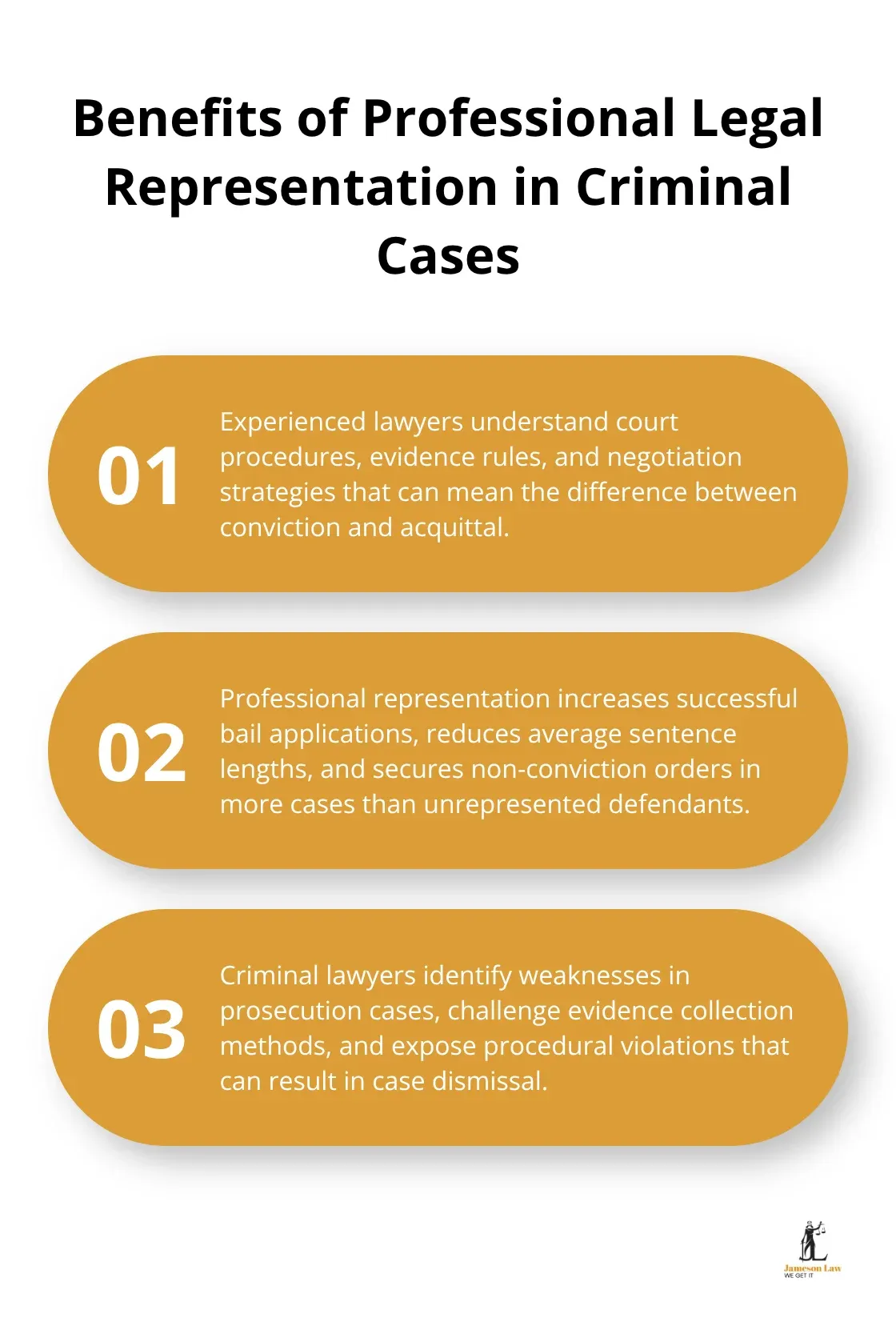Facing criminal charges can feel overwhelming and confusing. The legal system moves fast, and one wrong decision can impact your future significantly.
Understanding your rights and the legal process becomes essential when dealing with a criminal law case. We at Jameson Law know that proper guidance makes the difference between a favourable outcome and serious consequences. For urgent help in Sydney, call (02) 8806 0866 or contact us.
What Criminal Charges Are You Actually Facing?
NSW criminal law divides offences into two main categories that determine where your case gets heard and what penalties you might face. Summary offences like minor drug possession, traffic violations and disorderly conduct are dealt with in the Local Court of NSW with maximum penalties of two years imprisonment or $11,000 fines. The Commonwealth Director of Public Prosecutions received thousands of new criminal case referrals in the 2023–24 financial year, with a high proportion of defendants entering guilty pleas across matters. Indictable offences including assault, fraud over $5,000 and serious drug charges proceed in higher courts and carry much tougher penalties including lengthy prison sentences.

The Real Cost of Criminal Convictions
Traffic offences are the most common criminal matters in NSW, particularly speeding and drink driving where the 0.05 blood alcohol limit is strictly enforced. Drug possession and supply feature heavily in BOCSAR data, while domestic violence charges are treated very seriously with penalties ranging from substantial fines to imprisonment depending on assault severity. Property crimes like theft and fraud attract penalties linked to the value and circumstances. A criminal conviction can remain on your record unless it becomes “spent” under the Criminal Records Act 1991 (NSW), which can affect employment, travel and professional licensing.
Why Legal Timing Determines Your Options
The prosecution must prove its case beyond reasonable doubt. Waiting too long to seek legal advice can limit your defence options. Police briefs should reach you within statutory timeframes once you receive a Court Attendance Notice. Requesting disclosure early gives your lawyer time to spot weaknesses in the case. Early intervention often leads to charge reductions, alternative sentencing or even dismissal through evidence challenges under the Evidence Act 1995 (NSW). For a step-by-step overview, see our guide to criminal procedure in NSW.
What Rights Protect You During Criminal Proceedings?
Your fundamental rights are the foundation of a fair process, but you need to know how to use them. The right to legal representation is your strongest protection and helps you understand police powers in NSW. You can request a lawyer before answering questions, and this must be respected. Interviews without a lawyer frequently harm cases because statements are used as evidence.
Your Right to Silence Protects Your Case
Your right to remain silent applies throughout the process. You generally only need to provide your name and address. Refusing to answer other questions cannot be treated as guilt. Police may suggest co-operating will help, but experienced lawyers know silence often protects you better than any statement. Learn more in our explainer on your rights during interviews.

Bail Applications Require Immediate Action
Bail needs urgent attention because custody makes it harder to prepare your defence. Courts consider flight risk, community safety and the likelihood of reoffending. Show cause offences require you to demonstrate exceptional circumstances. Other matters start with a general presumption in favour of bail unless the prosecution shows otherwise. Engaging a lawyer within 24 hours of arrest improves bail outcomes due to better preparation and submissions. See our overview of bail and practical next steps.
Legal Representation Changes Everything
Defendants who secure experienced legal counsel early achieve better outcomes than those who go it alone. Skilled lawyers understand court procedure, evidence rules and negotiation strategies. They know how to challenge evidence, identify procedural errors and present persuasive arguments that protect your interests. Browse our insights on common criminal defences in NSW.
How Does Legal Representation Transform Criminal Cases?
Contact a criminal lawyer within hours of arrest, not days later. This single step often decides whether you have a proactive defence or a damage-control exercise. Interviews without a lawyer cause more harm than any other mistake. Early intervention can secure withdrawals, downgraded charges or alternative outcomes that keep you out of prison. Public prosecution data shows experienced representation also influences whether matters proceed to trial or resolve through favourable pleas.
What Actually Happens During Legal Consultations
Your first consultation should deliver a clear action plan. Effective criminal lawyers assess the strength of the brief, identify defence strategies and give realistic pathways based on similar cases. They review for procedural errors, witness inconsistencies and unlawful evidence collection that could justify exclusion. You should also cover plea options, sentencing alternatives like community corrections orders and a timeline for gathering material such as character references. If you need a primer on paperwork and timelines, see our NSW court procedures guide.
Legal Representation Changes Case Statistics Dramatically
According to the NSW Bureau of Crime Statistics and Research, representation impacts outcomes across bail, sentencing and non-conviction orders. Lawyers negotiate charge reductions through early discussions, targeted submissions and rehabilitation material. Explore typical charge pathways in our criminal law essentials guide.

How Lawyers Challenge Evidence and Procedures
Criminal lawyers spot problems untrained defendants miss. They challenge search warrants, forensic processes and interview procedures. Police must follow strict protocols when they collect evidence, conduct searches and question suspects. Any deviation can justify exclusion under the Evidence Act 1995 (NSW). If you have traffic-related allegations, review our guides on traffic offences and speeding penalties and demerit points. For interview do’s and don’ts, see this practical guide.
Final Thoughts
Professional legal support changes outcomes through strategy and strong advocacy. Defendants with experienced lawyers achieve better results than those who navigate the system alone. Moving quickly protects your rights and preserves defence options that can disappear with delay.
Contact a criminal lawyer immediately after arrest to protect your right to silence. Ask for your police brief as soon as you receive a notice to attend court so there is time to prepare. Gather character references, medical reports and financial material that supports your case. For tailored advice in Sydney, speak with Jameson Law on (02) 8806 0866 or send an enquiry today.













